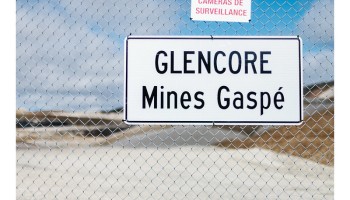However, some claim the trio’s accusations are a transparent attempt to derail the UK’s biggest bribery investigation.
“It’ll complicate the decision about what evidence is usable,” Michael Levi, a criminal law professor at Cardiff University, told Bloomberg. “That might be the benefit of muddying the water. Anyone can do this if they have enough money. You need to have enough money, is the key.”
Alexander Machkevitch, Alijan Ibragimov, and Patokh Chodiev are the mining tycoons behind Eurasian Natural Resources Corp. (ENRC), which is suspected of paying bribes to buy mines in Kazakhstan and Africa.
The mining group hired Neil Gerrard, a white collar London crime lawyer, in 2011 to conduct an internal investigation into multiple accusations of wrongdoing in Kazakhstan and Africa, according to the Financial Times.
They accuse Gerrard of erroneously arousing suspicions with the UK’s Serious Fraud Office (SFO) and ballooning his investigation out of proportion in order to milk the company for millions in legal fees.
Gerrard’s exploration uncovered serious criminality related to copper mines purchased in the Democratic Republic of Congo and Zambia, including evidence that the trio pocketed US$300 million from an inflated sale of a Zambian copper mine to ENRC, according to Bloomberg.
ENRC, however, says Gerrard was in cahoots with the SFO to exaggerate the claims and to give the watchdog a reason to open a probe, which it did in 2013.
“If you have senior figures at the SFO colluding with our own lawyers, this is a fundamental issue which goes to the heart of the legitimacy of the investigation,” ENRC’s general counsel Dmitry Egorov said in an interview with Bloomberg. “Ultimately, it should lead to the closure of the case. It’s really scandalous.”
Gerrard denies the collusion accusations. According to a defense claim revealed last month, Gerrard and his firm, Dechert LLP, say the SFO already had a strong case against ENRC without them, Bloomberg reported, including 13 suspicious activity reports detailing possible corruption and sanctions violations.
The lawyer for the trio is demanding the SFO disclose notebooks, emails, calendar entries and phone records, according to Bloomberg. If there is proof of collusion, the watchdog’s investigation could be stopped on technical grounds; Even if there isn’t, the allegations will inevitably stall and muddle the bribery proceedings.
ENRC fired Dechart in the spring of 2013, at which time they had paid $21 million in legal fees. They are now suing to recover this sum.






